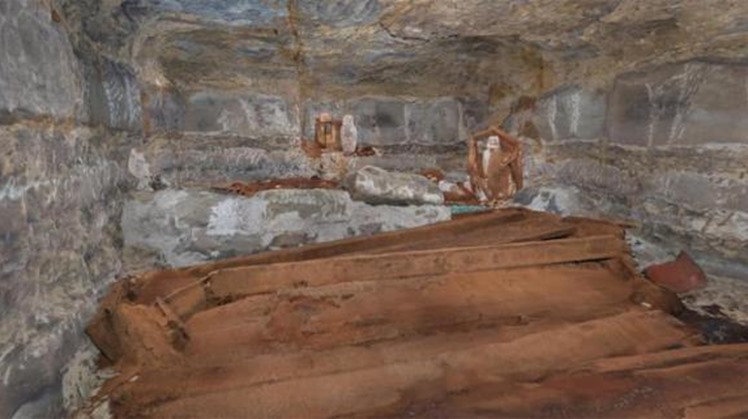Ancient-origins site shed light on an Egyptian archaeological excavation at the complex of the embalming workshop, which was discovered for the first time in Saqqara. A hidden burial chamber was discovered in the lower part of the workshop. Scientists from the University of Tübingen in Germany determined that some of those were buried in the Grand Cemetery Complex Next door is a priest and priestess of the mysterious snake goddess.
Recent studies have revealed some of the results about major visions of the "death actions" in Egypt and how mummifieds provided a series of embalming packages for each deceased.
The Ministry of Tourism and Antiquities had announced that a new burial chamber had been found in the mummification workshop complex of the twenty-sixth family (about 664-525 BC) discovered in Saqqara, the complex consists of several burial columns, some of which extend more than 100 feet (30 meters) deep This results in burial chambers bearing 54 mummies, skeletons, five coffins, and alabaster vessels containing the deceased's organs. Pottery pieces were also found by Lampalmer, thousands of statues, and a very rare gilded silver mummy mask.
One of the coffins belongs to a woman named Didebastet, and was buried with 6 canopic vessels, which contradicts the tradition that was practiced in ancient Egypt, where the lungs, stomach, intestine and liver of the deceased were placed and stored, said Dr. Ramadan Badri Hussein, director of the University of Tübingen University in Saqqara. In four jars under the protection of four well-known deities, they are the four sons of Horus.
The mission examined the content of the additional canopic jar of Didebasti using computerized tomography (CT), and the first analysis of the images indicates that the jar contains human tissue. However, more analysis is needed to determine the organs in the jars, the researchers assumed that for unknown reasons the Didebastite received a form Especially from the embalming that kept six members of her body instead of four.
 Mon, May. 4, 2020
Mon, May. 4, 2020